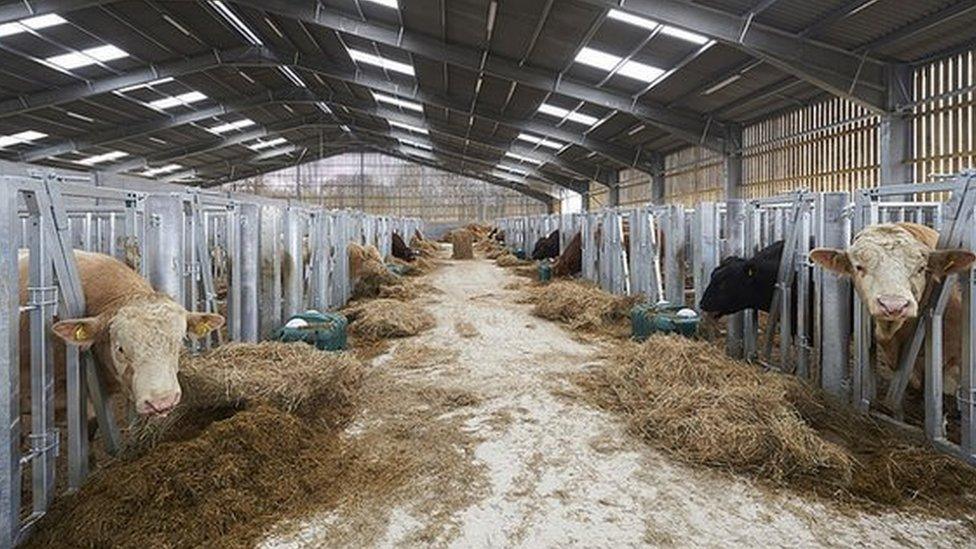Charity wins bid to take over land at bull stud farm
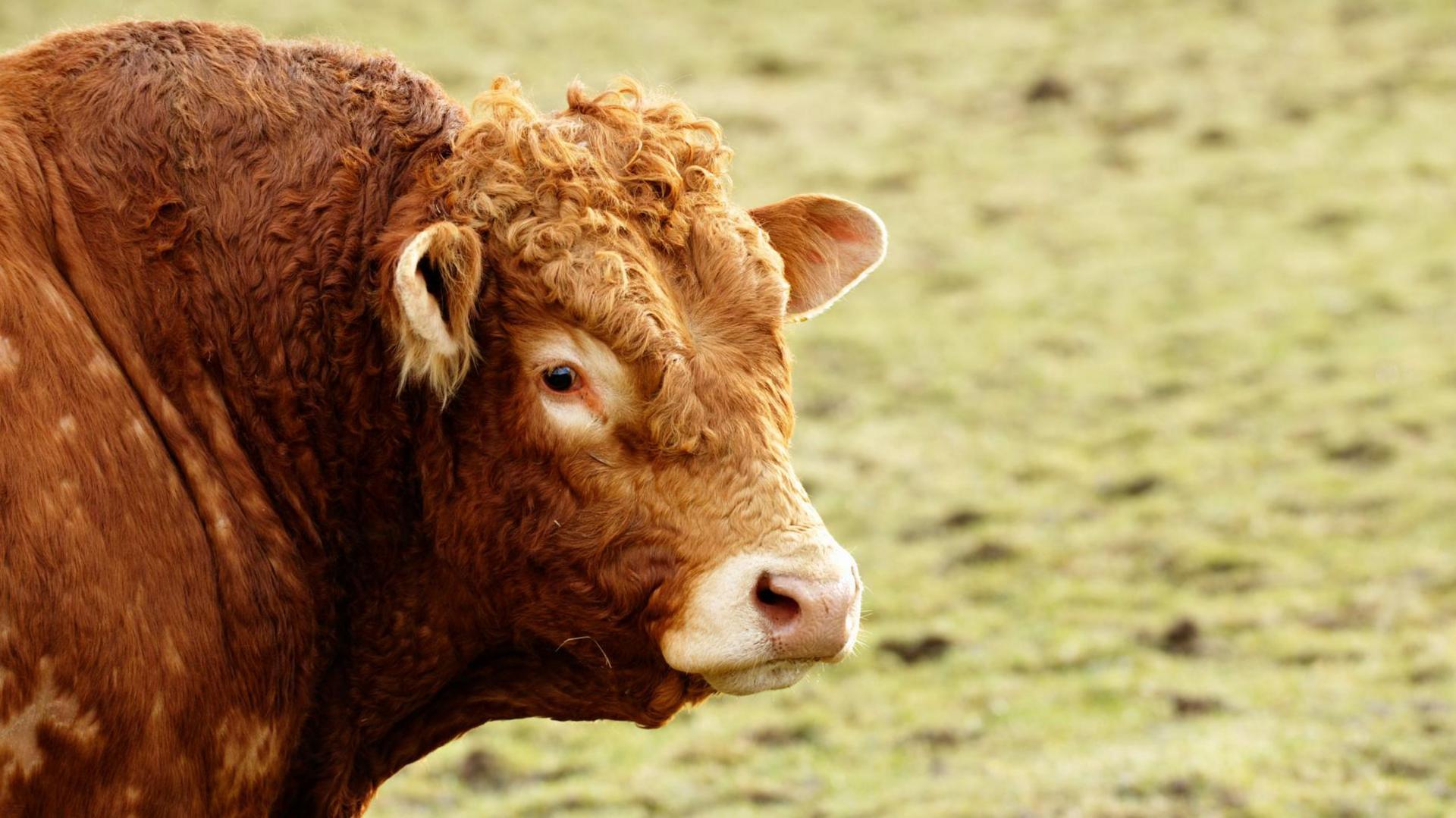
At a glance
A charity is moving forwards with a plan to take over land on a Scottish government-owned farm
Knocknagael on the south side of Inverness has bulls that are hired out to crofters
Knocknagael Ltd wants to develop almost 20 acres as a community garden, orchard and allotments
The asset transfer has been approved following a review by an independent panel
- Published
Land on a Scottish government-owned bull stud looks set to be taken into community ownership.
Bulls kept on the 326-acre (132 ha) farm at Knocknagael on the south side of Inverness are hired out to crofters across the Highlands and Western Isles.
Charity Knocknagael Ltd wants to create a community garden, orchard and allotments on almost 20 acres (8 ha) of land known as the Smiddy Field.
The Scottish government's Rural Payments and Inspections Division (RPID) had refused a request for the asset transfer, but the decision has been overturned following a review by an independent panel.
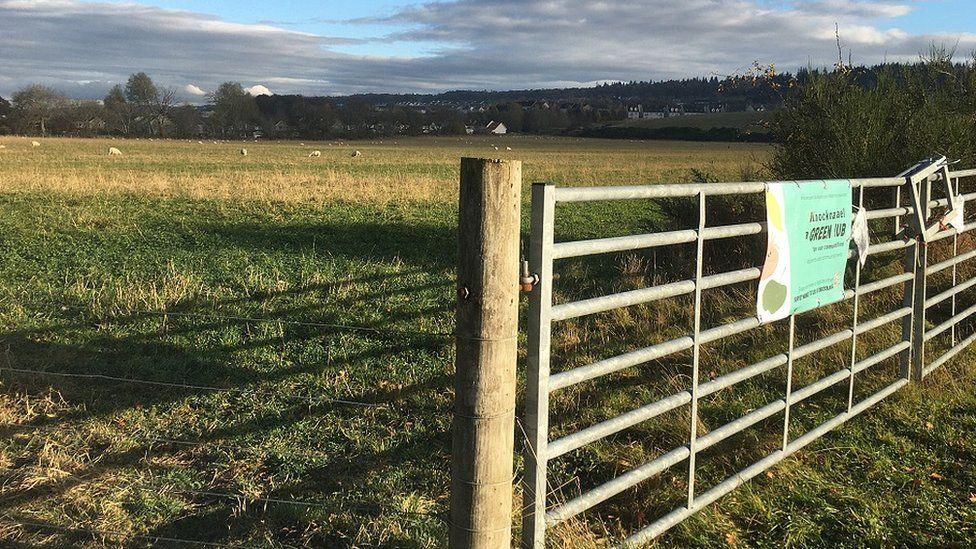
Knocknagael Ltd wants to put the Smiddy Field into community ownership
Government ministers have accepted the panel's decision.
Plans for the community bid were first made in 2015 after the field was deemed at the time to be surplus to requirements.
There were local concerns the land would be developed for housing and lost as a community asset.
Chairwoman Maria de la Torre said: "After almost eight years, we are over the moon with the news of the ministerial decision ordering the transfer of the Smiddy Field to the community to progress.
"We cannot believe we have finally reached the point where we are able to move. This has been a long road with hours of volunteer time dedicated to the project."
She added: "This is a once-in-a-lifetime opportunity to take forward a transformative project to benefit Inverness communities which will also safeguard the future of the farm."
RPID refused the asset transfer request because it said the land was needed for growing winter food, such as barley, hay or silage, for the bulls.
It said losing the field would mean sourcing alternative feed, leading to an increase to the farm's running costs which would be passed on to the crofters.
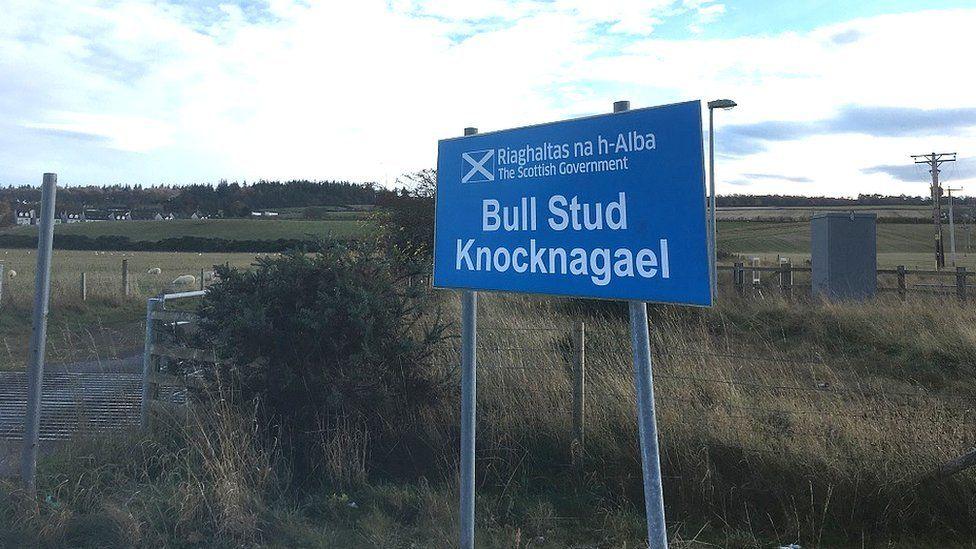
The farm is on the south side of Inverness
The bull stud scheme at Knocknagael dates back to Victorian times.
After laws were passed in 1897, crofters were offered bulls and rams free of charge to help improve the quality of calves and lambs.
Aberdeen Angus bulls were chosen to breed with crofters' Highland and Shorthorn cross-bred cows.
In the aftermath of World War Two, crofters had to start contributing to the cost of keeping the animals at the Inverness farm during the winter.
A fee for hiring the bulls was introduced in the 1960s.
Aberdeen Angus bulls eventually fell out of favour, to be replaced by Herefords and Simmentals in the 1980s and then Limousins in the 1990s.
The Crofting Commission ran the scheme for many years, before the Scottish government took it over.
There was a move to wind it up in 2010 because of a declining use of the bulls and rising costs of keeping the animals.
However, following protests from some crofting communities, the government decided to continue running the scheme at a reduced level.
Related topics
- Published11 March 2022
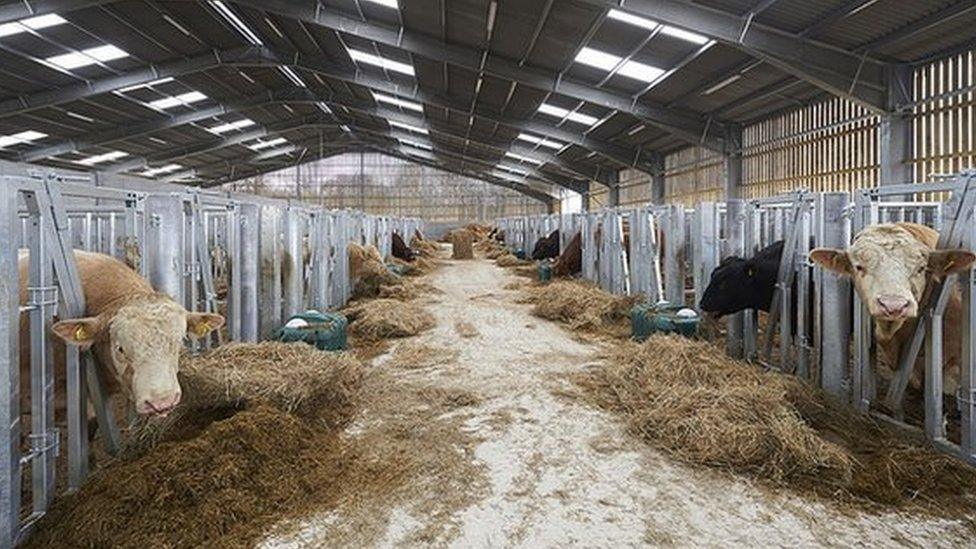
- Published15 November 2020
